 Chalk up another blow to transparency and an informed electorate, and another judicial victory for the democratic perversion known as corporate "free speech."
Chalk up another blow to transparency and an informed electorate, and another judicial victory for the democratic perversion known as corporate "free speech."
Last week, in Minnesota Citizens for Life, Inc. v Swanson, six of the eleven jurists serving on the U.S. Eighth Circuit Court of Appeal struck down the provisions of a Minnesota statute requiring corporations which create separate political funds in excess of $100 to file periodic financial disclosure reports with the state.
The case had been filed by three corporations, all of which contended that the reporting requirements were so onerous as to amount to a de facto ban on corporate free speech that violated Citizens United vs. Federal Election Commission [PDF]. That argument had been rejected first by a U.S. District Court Judge and then by way of a 2-1 Eighth Circuit panel decision. The majority on that panel had noted that even Citizens United recognized the government's right to "regulate corporate political speech through disclaimer and disclosure requirements" so long as the government did "not suppress that speech altogether."
On rehearing before the full 8th Circuit, Chief Judge William C. Reilly, a George W. Bush appointee, writing for the six member majority, acknowledged that the Minnesota statute "does not prohibit corporate speech." The majority ruled, however, that that state statute entailed excessive regulation which included an "ongoing" reporting requirement on the part of the corporate political fund that continues unless or until the corporation dissolves the fund. Chief Judge Reilly described that burden as both "onerous" and "monstrous."
The five dissenting jurists, which also included George W. Bush appointees, vigorously disagreed...


 Sunday 'Happyish Holidays' Toons
Sunday 'Happyish Holidays' Toons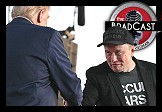 Trump Gets Trumped in Our Musky Year-End Roundtable: 'BradCast' 12/19/24
Trump Gets Trumped in Our Musky Year-End Roundtable: 'BradCast' 12/19/24 'Green News Report' 12/17/24
'Green News Report' 12/17/24
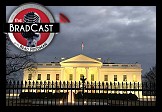 About Some of Trump's 'Day One' Threats: 'BradCast' 12/18/24
About Some of Trump's 'Day One' Threats: 'BradCast' 12/18/24 Trump Family Corruption Cometh...So Does Our Opposition: 'BradCast' 12/17/24
Trump Family Corruption Cometh...So Does Our Opposition: 'BradCast' 12/17/24 'Green News Report' 12/17/24
'Green News Report' 12/17/24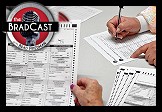 Mistallied Contests Found in OH County, as Oligarchy Rises in D.C.: 'BradCast' 12/16
Mistallied Contests Found in OH County, as Oligarchy Rises in D.C.: 'BradCast' 12/16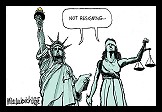 Sunday 'Barrel Bottom' Toons
Sunday 'Barrel Bottom' Toons Trump Admits He Can't Lower Grocery Prices (Biden Just Did): 'BradCast' 12/12/24
Trump Admits He Can't Lower Grocery Prices (Biden Just Did): 'BradCast' 12/12/24 'Green News Report' 12/12/24
'Green News Report' 12/12/24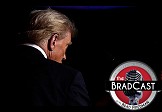 What 'Unprecedented and Powerful Mandate'?: 'BradCast' 12/11/24
What 'Unprecedented and Powerful Mandate'?: 'BradCast' 12/11/24 Trump Barely Won Natl'y, But Won 'News Deserts' By Landslide: 'BradCast' 12/10/24
Trump Barely Won Natl'y, But Won 'News Deserts' By Landslide: 'BradCast' 12/10/24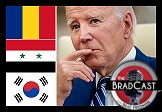 Bad Weekend for Authoritarians; Also: Pardon or Not?: 'BradCast' 12/9/24
Bad Weekend for Authoritarians; Also: Pardon or Not?: 'BradCast' 12/9/24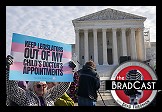 Fox 'News' and GOP Get Their Hateful War on Trans Kids at SCOTUS: 'BradCast' 12/5/24
Fox 'News' and GOP Get Their Hateful War on Trans Kids at SCOTUS: 'BradCast' 12/5/24 'Mind Boggles at Potential Corruption' in Trump Scheme: 'BradCast' 12/4/24
'Mind Boggles at Potential Corruption' in Trump Scheme: 'BradCast' 12/4/24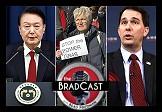 In Defense of Democracy from S. Korea to N. Carolina: 'BradCast' 12/3/24
In Defense of Democracy from S. Korea to N. Carolina: 'BradCast' 12/3/24 Hunter's Pardon: 'BradCast' 12/2/24
Hunter's Pardon: 'BradCast' 12/2/24 How (and Why!) to 'Extend Olive Branch' to MAGA Members: 'BradCast' 11/21/24
How (and Why!) to 'Extend Olive Branch' to MAGA Members: 'BradCast' 11/21/24
 VA GOP VOTER REG FRAUDSTER OFF HOOK
VA GOP VOTER REG FRAUDSTER OFF HOOK Criminal GOP Voter Registration Fraud Probe Expanding in VA
Criminal GOP Voter Registration Fraud Probe Expanding in VA DOJ PROBE SOUGHT AFTER VA ARREST
DOJ PROBE SOUGHT AFTER VA ARREST Arrest in VA: GOP Voter Reg Scandal Widens
Arrest in VA: GOP Voter Reg Scandal Widens ALL TOGETHER: ROVE, SPROUL, KOCHS, RNC
ALL TOGETHER: ROVE, SPROUL, KOCHS, RNC LATimes: RNC's 'Fired' Sproul Working for Repubs in 'as Many as 30 States'
LATimes: RNC's 'Fired' Sproul Working for Repubs in 'as Many as 30 States' 'Fired' Sproul Group 'Cloned', Still Working for Republicans in At Least 10 States
'Fired' Sproul Group 'Cloned', Still Working for Republicans in At Least 10 States FINALLY: FOX ON GOP REG FRAUD SCANDAL
FINALLY: FOX ON GOP REG FRAUD SCANDAL COLORADO FOLLOWS FLORIDA WITH GOP CRIMINAL INVESTIGATION
COLORADO FOLLOWS FLORIDA WITH GOP CRIMINAL INVESTIGATION CRIMINAL PROBE LAUNCHED INTO GOP VOTER REGISTRATION FRAUD SCANDAL IN FL
CRIMINAL PROBE LAUNCHED INTO GOP VOTER REGISTRATION FRAUD SCANDAL IN FL Brad Breaks PA Photo ID & GOP Registration Fraud Scandal News on Hartmann TV
Brad Breaks PA Photo ID & GOP Registration Fraud Scandal News on Hartmann TV  CAUGHT ON TAPE: COORDINATED NATIONWIDE GOP VOTER REG SCAM
CAUGHT ON TAPE: COORDINATED NATIONWIDE GOP VOTER REG SCAM CRIMINAL ELECTION FRAUD COMPLAINT FILED AGAINST GOP 'FRAUD' FIRM
CRIMINAL ELECTION FRAUD COMPLAINT FILED AGAINST GOP 'FRAUD' FIRM RICK SCOTT GETS ROLLED IN GOP REGISTRATION FRAUD SCANDAL
RICK SCOTT GETS ROLLED IN GOP REGISTRATION FRAUD SCANDAL VIDEO: Brad Breaks GOP Reg Fraud Scandal on Hartmann TV
VIDEO: Brad Breaks GOP Reg Fraud Scandal on Hartmann TV RNC FIRES NATIONAL VOTER REGISTRATION FIRM FOR FRAUD
RNC FIRES NATIONAL VOTER REGISTRATION FIRM FOR FRAUD EXCLUSIVE: Intvw w/ FL Official Who First Discovered GOP Reg Fraud
EXCLUSIVE: Intvw w/ FL Official Who First Discovered GOP Reg Fraud GOP REGISTRATION FRAUD FOUND IN FL
GOP REGISTRATION FRAUD FOUND IN FL



















 There is much, much more in-between our cuts here, including a storyline involving a hacking scandal that mirrors Rupert Murdoch and Newscorp's, but at the core of the recent Season 1 finale of HBO's
There is much, much more in-between our cuts here, including a storyline involving a hacking scandal that mirrors Rupert Murdoch and Newscorp's, but at the core of the recent Season 1 finale of HBO's  "Do you really want to live in a country where one party is so desperate to win the White House that they go around trying to make it harder for people to vote if they’re people of color, poor people or first generation immigrants?," Bill Clinton asked rhetorically on Tuesday night during an event organized by the Arkansas Democratic Party.
"Do you really want to live in a country where one party is so desperate to win the White House that they go around trying to make it harder for people to vote if they’re people of color, poor people or first generation immigrants?," Bill Clinton asked rhetorically on Tuesday night during an event organized by the Arkansas Democratic Party.


 The petitioners challenging the Republican polling place Photo ID restriction law as a violation of the state Constitution in Pennsylvania, have filed their appeal to the state's Supreme Court, after being caught off-guard by a
The petitioners challenging the Republican polling place Photo ID restriction law as a violation of the state Constitution in Pennsylvania, have filed their appeal to the state's Supreme Court, after being caught off-guard by a  The recent spate of federal court victories in favor of voting rights across the nation continued today, as a U.S. District Court judge in Ohio sided with Democrats and the Obama campaign, finding that the removal of in-person Early Voting for all voters on the final three days before Election Day in the Buckeye State was an "arbitrary" decision made by the state's Republican lawmakers and Secretary of State.
The recent spate of federal court victories in favor of voting rights across the nation continued today, as a U.S. District Court judge in Ohio sided with Democrats and the Obama campaign, finding that the removal of in-person Early Voting for all voters on the final three days before Election Day in the Buckeye State was an "arbitrary" decision made by the state's Republican lawmakers and Secretary of State.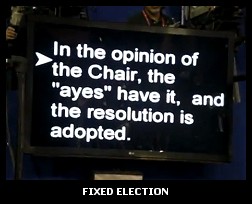 This is amusing and/or interesting and/or not surprising at all on several levels.
This is amusing and/or interesting and/or not surprising at all on several levels.
 Following on the
Following on the  The insults have been piling up all year, as the establishment GOP has been kicking its own to the curb in primary after primary, caucus after caucus, convention after convention.
The insults have been piling up all year, as the establishment GOP has been kicking its own to the curb in primary after primary, caucus after caucus, convention after convention.
 In a case where the employment of several members of the United Public Workers (UPW) was terminated after they failed to fully participate in unpaid, off-duty campaign activities on behalf of a union-supported Congressional candidate, three Republican members of the Federal Elections Commission produced an astounding Aug. 21 decision. They ruled that it is perfectly lawful for unions and corporations to compel their members and employees to engage in such activities, sans compensation, as part of "independent campaign efforts."
In a case where the employment of several members of the United Public Workers (UPW) was terminated after they failed to fully participate in unpaid, off-duty campaign activities on behalf of a union-supported Congressional candidate, three Republican members of the Federal Elections Commission produced an astounding Aug. 21 decision. They ruled that it is perfectly lawful for unions and corporations to compel their members and employees to engage in such activities, sans compensation, as part of "independent campaign efforts." 
 Late last week,
Late last week, 













